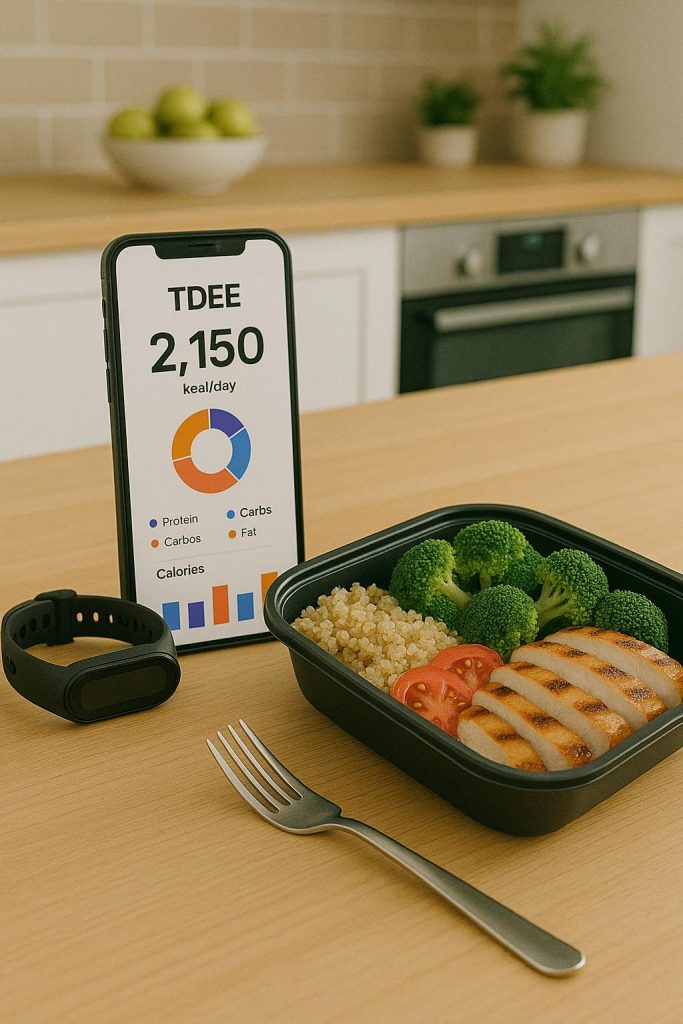To gain muscle and stay lean, you should eat about 250–500 extra calories per day above your maintenance level, while keeping your protein high and tracking progress regularly. This calorie surplus allows your body to build new muscle tissue without putting on unnecessary fat. Understanding your ideal calorie intake is crucial if you want to see real results at the gym—whether you’re a beginner or a seasoned lifter. In this guide, you’ll learn exactly how to calculate your needs, set up your macros, and optimize for steady, lean muscle growth. We’ll cover how to find your maintenance calories, the right surplus for your goals, and the latest expert recommendations.

For even more detail, check out the National Academy of Sports Medicine or CDC healthy weight guidance.
How to Calculate Your Maintenance Calories (TDEE)
Your maintenance calories—also called your Total Daily Energy Expenditure (TDEE)—is the number of calories you need to maintain your current weight. Knowing this number is the foundation for any muscle-building or fat loss plan.
- Use a TDEE calculator: Enter your age, weight, height, sex, and activity level into a reputable online calculator like IIFYM’s Macro Calculator or Bodybuilding.com’s Calorie Calculator.
- Estimate by formula: For a rough estimate, use:
– Men: 2,000–3,200 calories/day
– Women: 1,600–2,400 calories/day
(CDC, 2024; Verywell Health)
If you’re not sure, start at the calculator’s suggested intake, track your weight weekly, and adjust as needed.
The Ideal Calorie Surplus for Muscle Gain
Eating in a calorie surplus is essential for muscle growth, but too large a surplus will add unnecessary body fat. Here’s how to keep it lean:
- Lean bulking: Add 250–500 extra calories per day to your TDEE.
- Beginners: +250–500 kcal/day (for faster initial gains)
- Experienced lifters: +100–150 kcal/day (for leaner, slower gains)
- (Bulk Nutrients, 2025)
- Aggressive bulking: +500–750+ kcal/day (not recommended for most—results in more fat gain)
Tip: Gain about 0.5–1 pound per week for most. If you’re gaining weight faster, reduce the surplus to minimize fat.
Protein and Macro Targets
Your macronutrient balance is as important as your calorie intake:
- Protein: Eat 1.6–2 grams per kg of body weight daily (0.7–1 g per lb). This helps support muscle growth and repair.
(National Academy of Sports Medicine, 2025) - Carbs: Prioritize carbs for energy (about 40–60% of total calories).
- Fats: Don’t go too low—keep at least 20–30% of total calories from healthy fats.
Example:
A 180-pound person (82 kg) should eat about 130–160g of protein per day.
Tracking Progress and Adjusting Your Intake
Building muscle while staying lean requires regular adjustments:
- Weigh yourself weekly (same day/time, same conditions).
- Track your body composition (photos, body measurements, or smart scale).
- Adjust calories if needed:
- Not gaining muscle? Add 100 kcal/day.
- Gaining fat? Cut back by 100 kcal/day.
- Be patient: Muscle gain is slow—expect 1–2 lbs of muscle per month with consistent effort and nutrition.
FAQ: Common Concerns
Can I gain muscle without gaining fat?
Some fat gain is normal, but by keeping your calorie surplus moderate and prioritizing protein, you’ll maximize muscle and minimize fat.
Do I need to eat more on workout days?
You can keep calories consistent, but some athletes like to eat a bit more on intense training days for recovery.
What about “clean” vs. “dirty” bulking?
Clean bulking means prioritizing whole foods and slow weight gain. Dirty bulking (huge surpluses, junk food) leads to more fat and worse health—avoid it.
Conclusion
To gain muscle and stay lean, calculate your TDEE, add a moderate surplus of 250–500 calories, keep your protein high, and adjust based on progress. With this approach, you’ll build muscle efficiently—without adding unwanted fat. Start tracking today, and if you’re ready for a personalized meal plan or more tips, check out our free resources or connect with a certified nutrition coach!
This guide is for informational purposes only and does not replace advice from a registered dietitian or physician. Always consult a professional for individualized nutrition plans.
